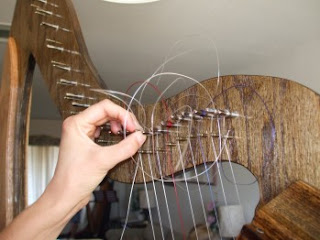I went to the public library today and walked through the book stacks in the juvenile fiction section, looking for some good hard science fiction.
I found none. The one book I found with a little science fiction sticker on the spine was not science fiction. "This isn't science fiction!" I said out loud, "This is fantasy with space ships in it!"
I have a mission.
There are a few authors writing science fiction books for young readers. Monica Hughes is a favorite of mine. I also liked several of John Christopher's books, like the "Tripods" trilogy and "The Guardians" and that one about the moon base, whatever it was called. Haddix has some good ones, and there's a few by William Sleator, but that's about all that I can think of.
Sometimes I sit back and wonder why I pick such difficult writing projects for myself. I could write something ordinary and easy, like a school book, or a straightforward fantasy adventure. Instead I have to write metafiction about an elite, undercover organization of minor characters devoted to making sure the hero of each story can save the day. Or then there's my not-so-epic fantasy novel where the main character has the magical gift of being able to hear the narrative in her head as the story plays out. Do you have any idea how hard these things are to pull off?
Now I have a mission to top them all. I'm going to write a fast-paced, daring, exciting, compelling, hard science fiction book about a boy, a very large rocket, and a very, very large rock. Sounds fun, doesn't it?






